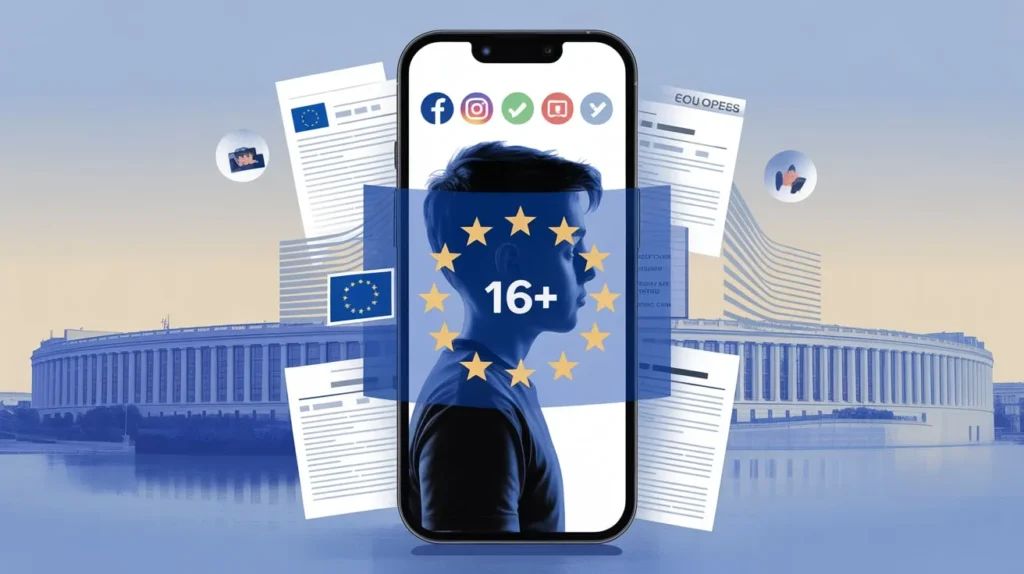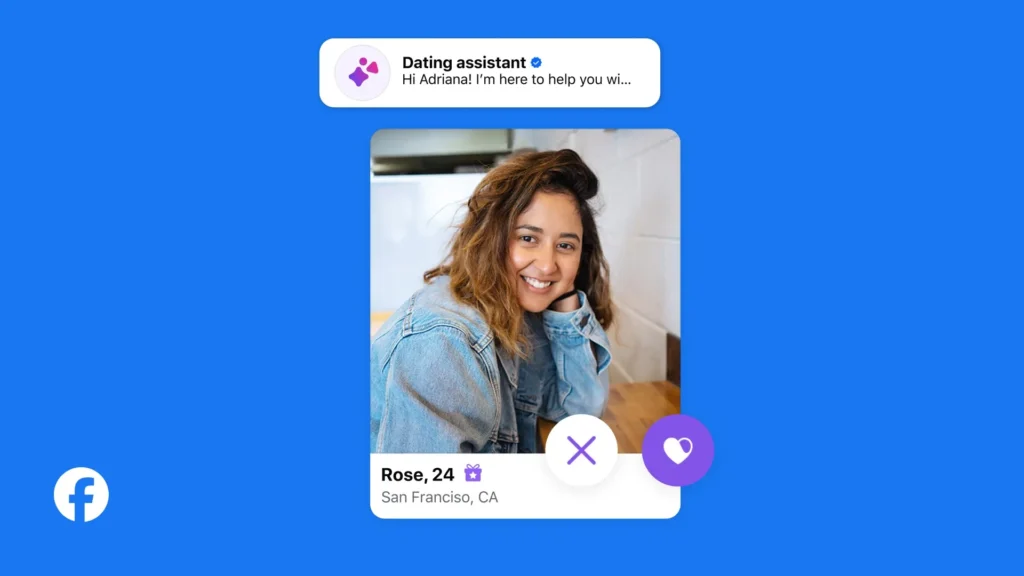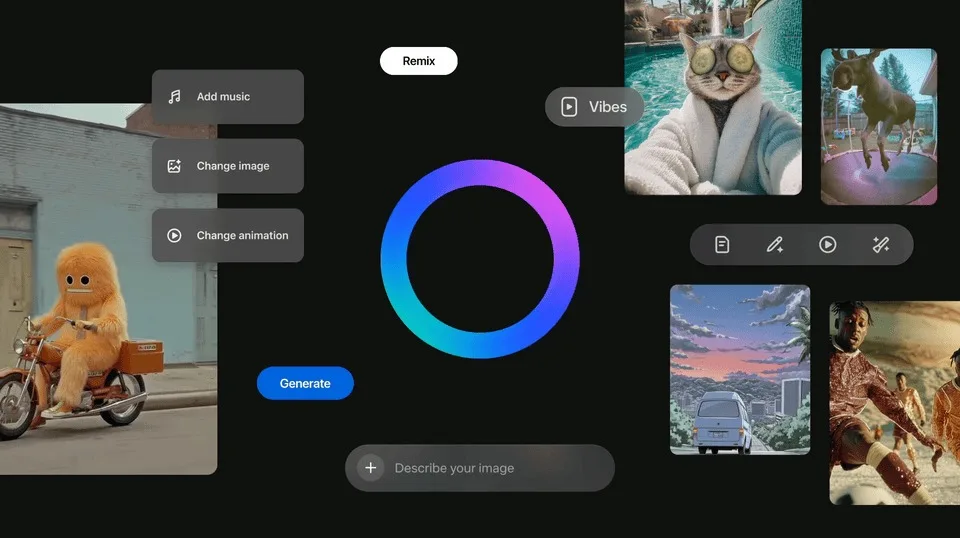Europe Prepares Minimum Age of 16 for Social Media
Europe is set to fundamentally reshape access for young people to social media, video platforms, and even AI chatbots.
This Wednesday, the European Parliament passed — with an overwhelming majority (483 in favor, 92 against, and 86 abstentions) — a report calling for a minimum age of 16 to access social media, with an exception: 13 to 16-year-olds may enter, but only with parental consent.
This is a clear political signal as concerns rise regarding mental health, digital addictions, and the role of algorithms in the daily lives of children.
Why Now?
Because the statistics are alarming:
- 97% of young people go online every day
- 78% of 13-17 year-olds check their phones at least once an hour
- 1 in 4 minors show problematic smartphone use, akin to addiction
- Over 90% of Europeans consider enhanced regulation “urgent”
Lawmakers highlight a now well-documented phenomenon: The manipulative design of platforms — infinite scrolling, autoplay, reward loops, and “pull-to-refresh” — affects attention, behavior, and mood like an addictive system.
Age Verification, eID, and Strengthened Responsibility: The EU Ups Its Strategy
The Parliament supports the creation of:
- a European age verification application,
- increased use of the European digital identity wallet (eID),
- with a requirement for reliability and respect for privacy.
However, age verification does not absolve platforms of their duty to ensure a safe and appropriate environment for minors.
The EU is more stringent than ever: It proposes that senior executives can be held personally accountable for serious and repeated non-compliance with legislation (notably the Digital Services Act).
Europe Aims to Ban the Most Addictive Digital Practices
The agenda is ambitious — some may call it radical. The Parliament requests:
Complete Ban on the Most Harmful Practices
- infinite scrolling,
- autoplay,
- reward mechanisms,
- aggressive gamification…
All addictive features must be disabled by default for minors.
Blocking Non-Compliant Platforms
Yes, the EU is prepared to ban services that refuse to comply with its standards.
Comprehensive Overhaul of Persuasive Technologies
- targeted advertising,
- influencer marketing aimed at minors,
- dark patterns,
- recommendation systems based on engagement (thus prohibited for minors).
Strict Regulation of Video Games
- ban on loot boxes (virtual items),
- ban on random mechanisms (spin wheels, in-app currencies, pay-to-progress),
- extension of the DSA to online video platforms.
Urgent Regulation of Generative AIs
Europe seeks to address immediate risks related to:
- deepfakes,
- autonomous AI agents,
- “companion” chatbots for minors,
- apps generating synthetic nudity.
This has become a pressing issue with the rise of conversational AIs.
Kidfluencing, Commercial Exploitation, and “Parental Oversharing” Under Scrutiny
The EU aims to halt the transformation of children into monetizable influencers. It proposes to regulate platforms that pay or encourage minors to publish and to mitigate risks associated with parental oversharing of private data about their children.
What Awaits Europe in the Next 12 to 24 Months
The next phase will include:
- widespread deployment of age verification technologies;
- new restrictions on smartphones in schools;
- enhanced tools for reporting cyberbullying;
- digital education campaigns;
- a European action plan against cyberbullying;
- and a pan-European survey on the impact of social media on mental health.
For Brussels, the stakes are clear: children are entering the digital world earlier than ever—often before the age of 10. Action must be swift.
The Major Challenge: Effectively Enforcing Existing Laws
Europe already possesses a robust regulatory framework: DSA, GDPR, “Audiovisual Services” directive. However, enforcement varies from country to country.
MEPs recognize: without resources, coordination, and robust age verification, protections remain theoretical.
What the European Parliament proposes today is not a mere adjustment. It represents a paradigm shift. It redefines young people’s access to digital spaces, the responsibility of platforms, permissible business practices, and the role of the state in overseeing the digital environment.
The upcoming years will be decisive—for children, for parents, for schools… and for tech giants, who will have to adapt to a European framework that aims to become the global standard.




